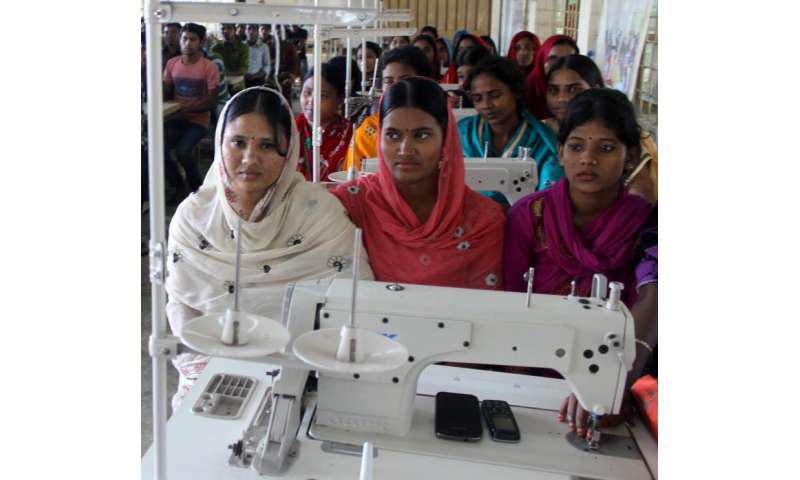Building new skills for better jobs in Bangladesh

Bangladesh has been a job creation success story in recent years as a booming garment industry provides work for large numbers of rural migrants, especially women. The country is second only to China as the world's largest apparel exporter, with its ready-made garment sector employing four million people and accounting for almost 80% of export earnings.
However, as Bangladesh increasingly shifts to non-farm employment, a new generation faces challenges finding good jobs in this country of more than 165 million people. While changes in the employment landscape have brought many benefits, most Bangladeshis still work in low-skill jobs in the informal sector. In addition, deadly fires and building collapses have highlighted the uneven working conditions and weak enforcement of labour laws in the country's 5,000 garment factories.
Led by the South Asian Network on Economic Modeling (SANEM), research teams are examining Bangladesh's rural-to-urban transformation from multiple angles. Their findings will inform policies aimed at improving young rural Bangladeshis' chances of securing decent jobs and reaping the benefits of the global economy. The research, funded by Canada's International Development Research Centre, will also address a pressing concern in Bangladesh and elsewhere in South Asia: how to move beyond low-skill jobs and up the manufacturing ladder to a high-skill economy.
About 85% of garment workers in Bangladesh are migrants from rural areas, where non-farm opportunities may be in short supply. A factory job offers women more autonomy outside of the home and an alternative to early marriage. However, women in some of the poorest parts of the country face barriers to participation in the garment sector. Obstacles include distance, social constraints, lack of information about job opportunities, and absence of support networks in the cities.
As part of this project, researchers are evaluating an innovative training and job placement program in northern Bangladesh to determine which interventions work best for rural residents hoping to secure factory jobs. The program, launched four years ago in Gaibandha District by local NGO Gana Unnayan Kendra, involves one month of skills training and a stipend. This is followed by an internship at a selected garment factory, usually in Dhaka, along with mentoring and help finding a good job.
To date, more than 90% of trainees completing the program have found work. A randomized control trial involving 1,600 participants will help determine why some trainees drop out of the program, and which elements – the stipend, training or mentoring – contribute most to a successful outcome. The study is expected to provide insights relevant to other developing countries interested in connecting residents of poor regions to good job opportunities.
Provided by International Development Research Centre (IDRC)